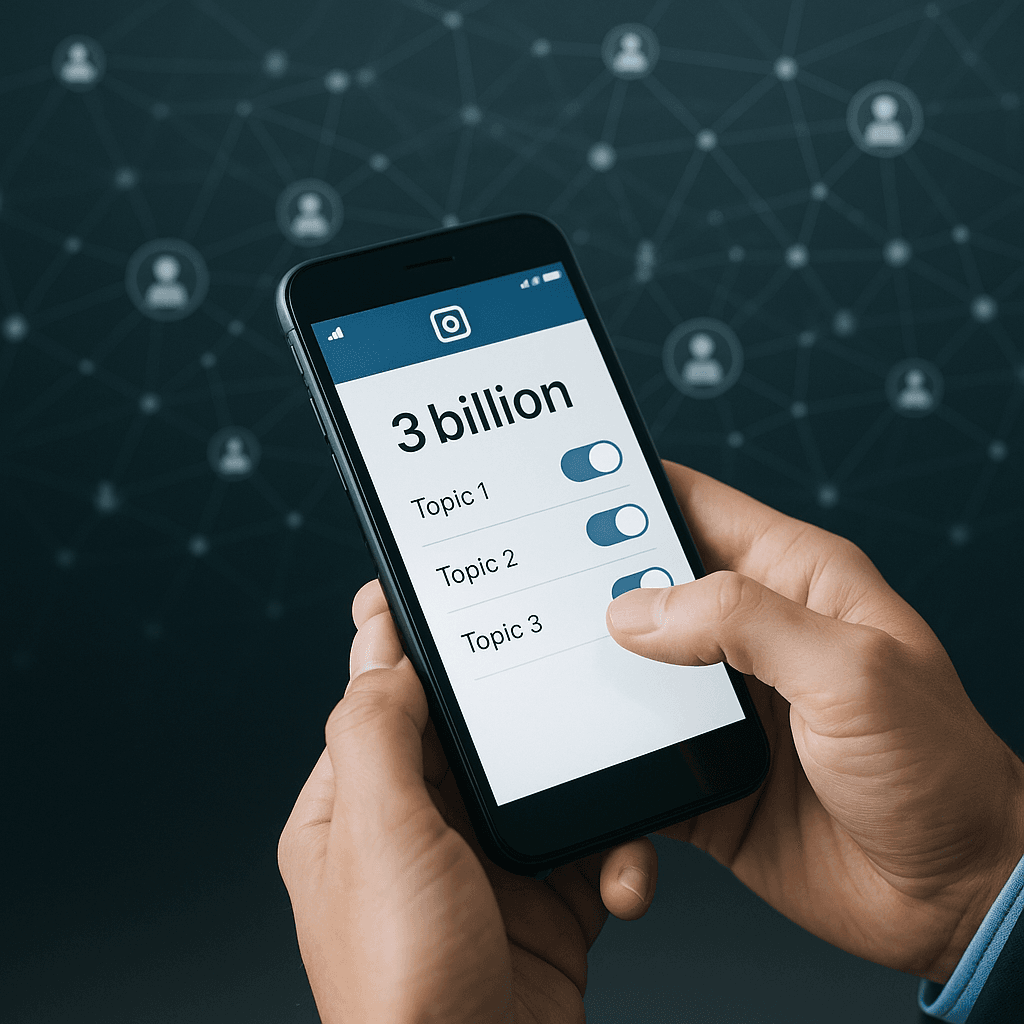Meta's Instagram just crossed a massive milestone - 3 billion monthly active users, tripling its size since 2018. But the real story isn't just the numbers. As CEO Mark Zuckerberg and Instagram Head Adam Mosseri announced the figure, they're also rolling out features that let users actually control what their algorithm shows them - a direct response to growing user frustration with AI-driven feeds.
Instagram just hit 3 billion monthly users, and Meta isn't shy about what got them there. The growth has been almost entirely driven by three things: direct messages, Reels, and algorithmic recommendations from accounts users don't even follow. It's a dramatic shift from the photo-sharing app that built its early success on friends' vacation pics and food shots.
"If you look at the last few years, almost all of our growth has been driven by DMs, Reels, and recommendations," Instagram Head Adam Mosseri said in a company video. "Because of that, we're going to continue to focus on those products and reorient the app more around DMs, Reels, and recommendations over the next couple of months."
But here's where it gets interesting - Meta knows this algorithmic approach has created tension. Users have been vocal about their frustration with seeing less content from people they actually follow and more from random accounts the algorithm thinks they'll like. So Instagram is testing something new: actual user control over the recommendation engine.
The new feature, which Mosseri demonstrated in early mockups, lets users toggle specific topics the algorithm thinks they're interested in. Love chess content but getting tired of college football reels because your team is having a rough season? You can literally turn off college football recommendations while keeping the chess content flowing. It's a level of granular control that feels almost revolutionary for a platform that's built its recent success on algorithmic decision-making.
This user empowerment move comes as Meta faces ongoing legal challenges from the FTC over its Instagram and WhatsApp acquisitions. The antitrust trial has surfaced internal emails revealing tensions between Facebook and Instagram leadership. Instagram's cultural relevance has soared while Facebook struggles with teen engagement, creating an interesting dynamic within 's portfolio.



